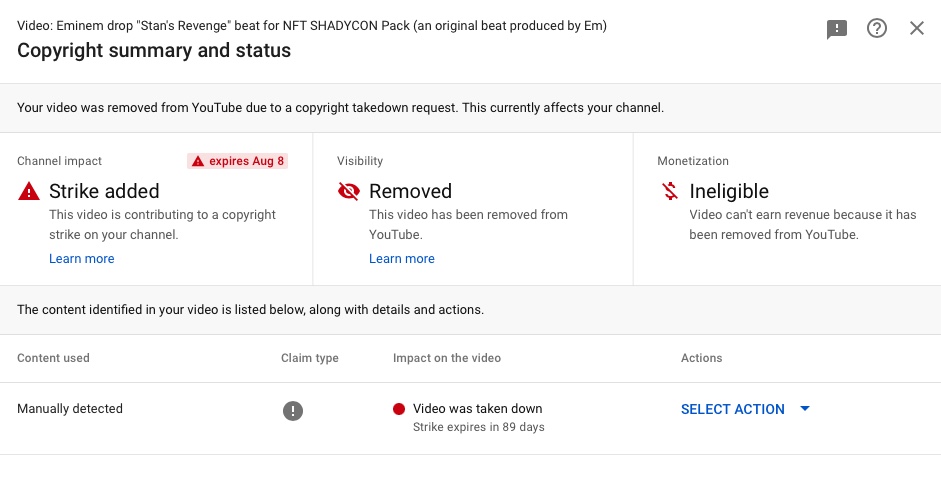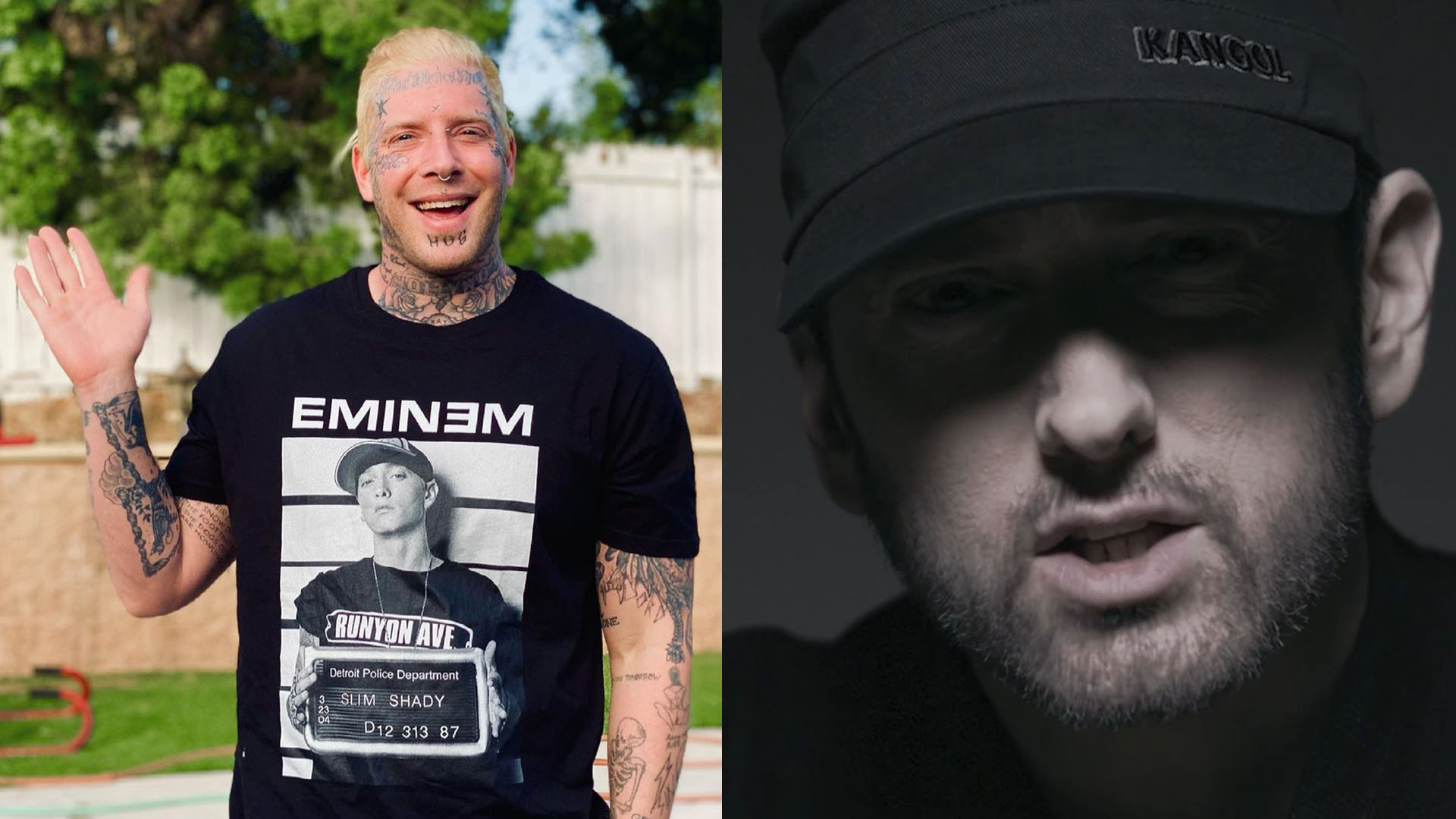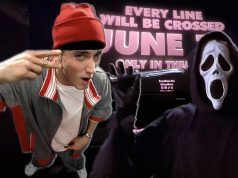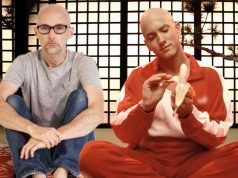Tom McDonald files complaints against fan pages and YouTube channels for using Stans’ Revenge beat.
Today, several fans posted that Tom McDonald personally sent requests to delete videos with Stans’ Revenge beat that Eminem auctioned as NFT recently.
Our channel got a similar strike, and the Stans’ Revenge video was taken down following Tom’s complaint.


In his copyright takedown request, Tom refers to the NFT auction he won as the reason why he has the right to go after fans reposting the beat. A copyright strike poses a severe threat to any channel as it can result in removing all videos from the channel or even the termination of an account. It also means that a copyright owner submitted a complete and valid legal takedown request for using their copyright-protected content.
However, is it the case with Tom McDonald and Stans’ Revenge NFT he won two weeks ago? What exactly did he win, and what rights this purchase gives him?
In a legal analysis of NFTs from the copyright perspective, Andres Guadamuz addressed a fundamental misconception about NFT and copyright, namely the illusion that owning NFT makes one the owner of the digital work this NFT is issued to.
Cent project, which offers an NFT service for tweets, explains:
“Owning any digital content can be a financial investment, hold sentimental value, and create a relationship between collector and creator. Like an autograph on a baseball card, the NFT itself is the creator’s autograph on the content, making it scarce, unique, and valuable“.
What is important that buying NFTs, people buy metadata uniquely attached to the item this NFT has been issued to. The NFT is not the actual item or work of art itself. It is metadata that ties it to the original work. It might seem like what is being bought is a work of art, or a tweet, or a video, but that is not correct. What people are purchasing is a unique receipt written into the blockchain.
No ownership of the work of art is involved in this transaction, even if some people think about NFTs in copyright terms and believe that the NFT is somehow a digital title to the original, an actual claim of property. Instead, an NFT is more like a receipt that you own a signed version of something, not the actual thing itself.
So NFTs are useless from a copyright perspective, as what is being sold is a digital version of the work, not the work itself.
Commenting on the intersection of NFTs and copyright licensing, Creative Commons CEO Catherine Stihler noticed: “creating an NFT does not implicate copyright”.
Researchers from Institute for Information Law offer even more decisive conclusion based on EU copyright law, terms of his NFT sales and the nature of NFT. In the article published on Kluwer Copyright Blog, they state:
“The purchase of an NFT grants the acquirer at best a quasi-ownership interest in a set of information or metadata linked to copyright-protected content. Unless (a) the transaction is accompanied by contractual stipulations regarding the transfer of the work attached to the NFT that are valid under the applicable national law, or (b) the applicable national law somehow configures an NFT transaction (absent other contractual stipulations) as the transfer of the linked-to work, then the acquirer of an NFT obtains only a right over the metadata pointer to a digital object. She does not obtain ownership or exclusive rights on the work or copy. For instance, the work attached to an NFT may still be viewed on YouTube, downloaded, or tweeted by third parties without infringing on the rights of the NFT owner.
In the field of copyright law, the acquirer of an NFT associated with copyright-protected content (e.g. a digital artwork) will often have no legal ownership or right to enforce copyright interests over that content“.
To summarise, by default, Tom does not own the Stans’ Revenge beat. Hence he has no legal ground to hound down the fans who use this beat. He can only claim copyright ownership if his purchase came with a special agreement on transferring copyright from Marshall to whoever won the auction. And even in this case, the reason to take videos down and to prove his ownership should be this agreement and not the link to the public auction.












